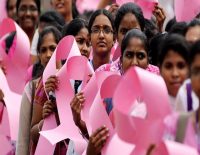India’s mental health crisis: 65% believe lack of awareness for mental stigma

A recent survey has revealed a troubling reality within India’s mental health landscape. Young adults, particularly women, grapple with a complex web of interconnected barriers that prevent them from seeking the support they need. Stigma, rooted in a lack of awareness and restrictive societal norms, fuels a deep misunderstanding of therapy’s value. This, compounded by the prohibitive cost of mental healthcare, silences those who desperately need it.
The survey highlights a critical need for increased awareness, with 65% of respondents believing limited understanding is the primary driver of mental health stigma. This lack of awareness intersects with harmful societal norms around emotional expression that is cited by a staggering 83%, creating a particularly challenging landscape for different genders seeking help. The damaging belief that therapy signifies weakness held by 35% further discourages individuals from getting professional support.
Participants reveal the tendency to underestimate what therapy can offer. Equating it with simply talking to a friend (59%) obscures the value of a therapist’s expertise and structured interventions. Similarly, 72% underestimate the severity of career-related mental health struggles and the role therapy can play in addressing them. This limited understanding, coupled with the overwhelming cost concern shared by 60% of respondents, effectively blocks access to essential mental healthcare.
Stigma’s Consequences and the Path to Change:
The weight of stigma and lack of access have devastating consequences. Over half fear mental illness hurts their job prospects (52%), the ability to marry (64%), and causes feelings of shame (56%). Societal judgment looms large, with 71% deeply worried about how they’ll be perceived. Still, 70% recognize that to break this cycle, we must acknowledge the widespread impact of mental illness.
A Glimmer of Hope:
While 62% view therapy as a last resort, they also see potential in supportive families (51%) as catalysts for seeking professional help. This underscores the importance of dismantling stigma within communities and underlines support as a motivational factor for help seeking behavior.
Implications of the survey
The survey’s findings highlight the urgent need for comprehensive measures to combat the stigma surrounding mental health in India. Reducing mental health stigma requires a multifold approach that involves various stakeholders, including policymakers.







